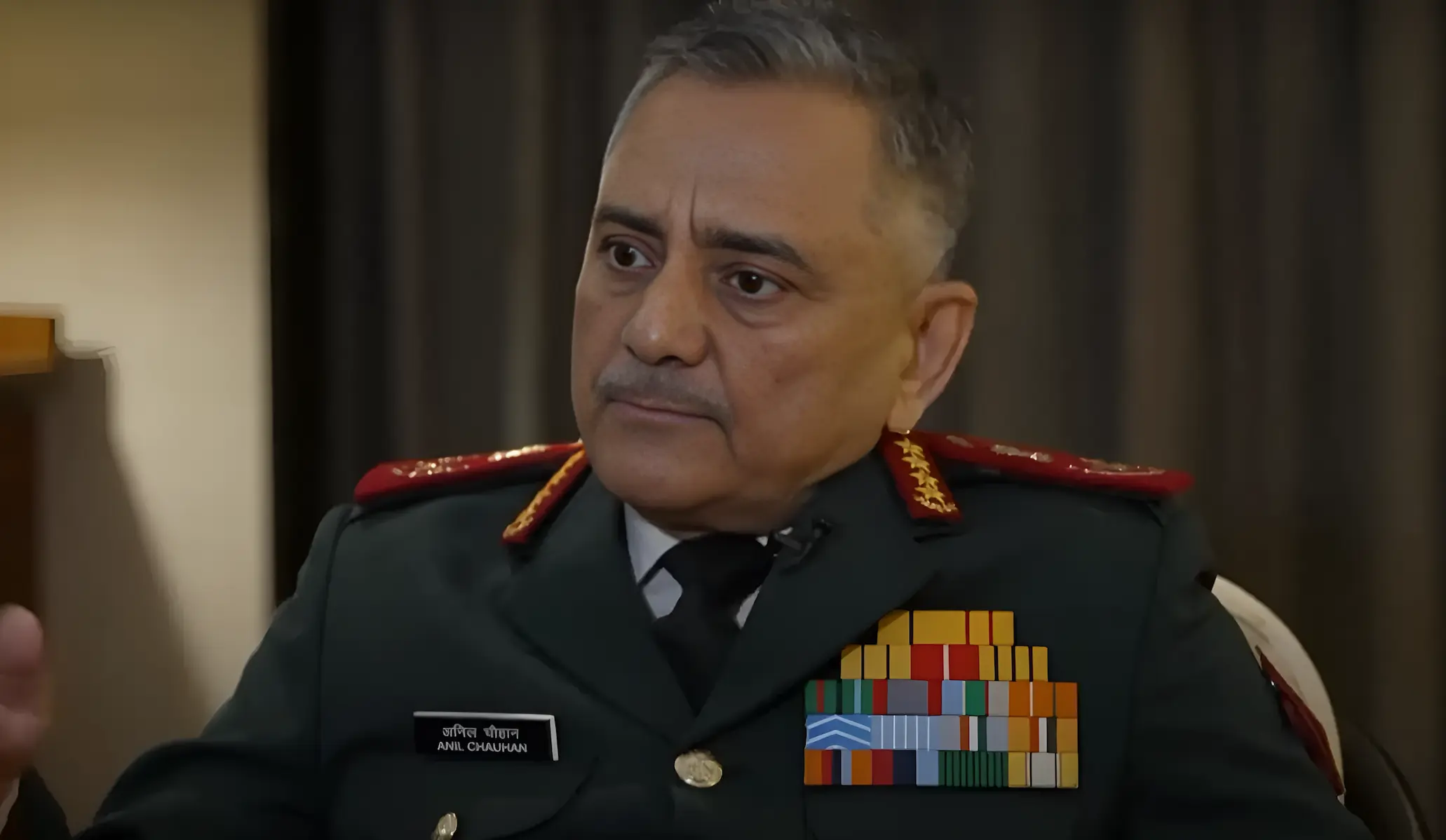
CDS Chauhan’s admission on combat losses during Operation Sindoor raises two critical questions about India’s information war strategy
Gov’t Information War Missteps- The fog of war is lifting, and with it, India’s strategic communication failures are coming into sharp focus. Chief of Defence Staff (CDS) General Anil Chauhan’s recent admission regarding combat losses during Operation Sindoor has raised two critical questions about the Modi government’s handling of the information war.
While India’s military operations have demonstrated tactical precision, the government’s communication strategy has come under fire for its lack of transparency. The Congress party has accused the Modi administration of misleading the nation, demanding a comprehensive review of India’s defense preparedness.
This revelation has sparked debates on whether India’s information strategy is keeping pace with its military advancements. The two big questions that arise from CDS Chauhan’s admission are:
- Why was the loss admission made on foreign soil instead of an official statement in India?
- What are the broader implications of India’s information war strategy in the face of rising geopolitical tensions?
CDS Chauhan’s Admission: A Tactical Mistake or a Necessary Disclosure?
During the Shangri-La Dialogue in Singapore, CDS Chauhan acknowledged that India lost combat jets during Operation Sindoor. This statement, made on foreign soil, has led to intense scrutiny from military analysts and political leaders.
Why Was the Admission Made in Singapore?
Critics argue that such disclosures should have been made in India, accompanied by official estimates of Pakistan’s losses. The Congress party has demanded a special session of Parliament, questioning the government’s lack of transparency.
The Fallout of the Admission
- Pakistan’s Propaganda Victory: The timing and location of the admission have strengthened Pakistan’s narrative, allowing it to capitalize on India’s acknowledgment of losses.
- Public Diplomacy Concerns: Security experts believe that India’s public diplomacy strategy has been poorly executed, handing Pakistan a strategic advantage.
- Impact on Military Morale: While CDS Chauhan emphasized that losses in war are not important, critics argue that such statements should be carefully framed to maintain public confidence.
India’s Information War Strategy: A Critical Review
The Modi government’s approach to information warfare has been widely debated. While India’s military operations have been highly effective, its communication strategy has struggled to maintain control of the narrative.
Key Issues in India’s Information War Strategy
- Lack of Transparency: The government’s reluctance to share details about Operation Sindoor has led to speculation and misinformation.
- Delayed Official Statements: The absence of timely updates has allowed opposition parties to question the government’s credibility.
- Failure to Counter Pakistan’s Narrative: Pakistan’s media has effectively leveraged India’s admission, portraying it as a major victory.
Lessons from Global Information Warfare
Countries like the United States and Russia have mastered the art of strategic communication, ensuring that military operations are backed by strong information campaigns. India must adopt a similar approach, ensuring that its military successes are effectively communicated to the public and international community.
The Political Fallout: Congress vs. Modi Government
The Congress party has intensified its criticism of the Modi government, accusing it of misleading the nation. Congress leader Mallikarjun Kharge has demanded a comprehensive review of India’s defense preparedness, calling for an independent expert committee similar to the Kargil Review Committee.
Additionally, Congress MP Pramod Tiwari has pointed out that CDS Chauhan’s statement contradicts the Modi government’s official stance, further fueling concerns about India’s strategic communication failures.
Conclusion – Information War Missteps
India’s military strength is undeniable, but its information warfare strategy needs urgent recalibration. The Modi government’s handling of CDS Chauhan’s admission has raised serious concerns about India’s ability to control its narrative in geopolitical conflicts.
Moving forward, India must prioritize transparency, strengthen its strategic communication, and ensure that critical military disclosures are made through official channels. The battlefield is not just physical—it is also digital and informational.
India’s next steps in information warfare will determine whether it emerges as a global power or continues to struggle with narrative control. The Congress party’s demand for a defense review underscores the growing pressure on the Modi government to reassess its approach to strategic communication.
With geopolitical tensions escalating, India must learn from past mistakes and adopt a proactive approach to information warfare, ensuring that its military victories are not overshadowed by communication failures.
Also read – India is Open to Dialogue with Pakistan